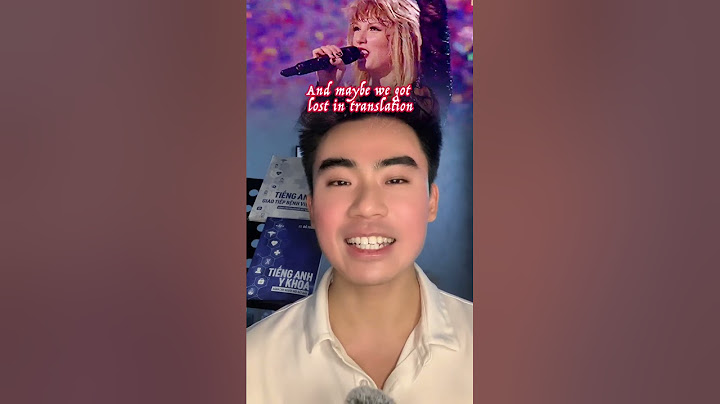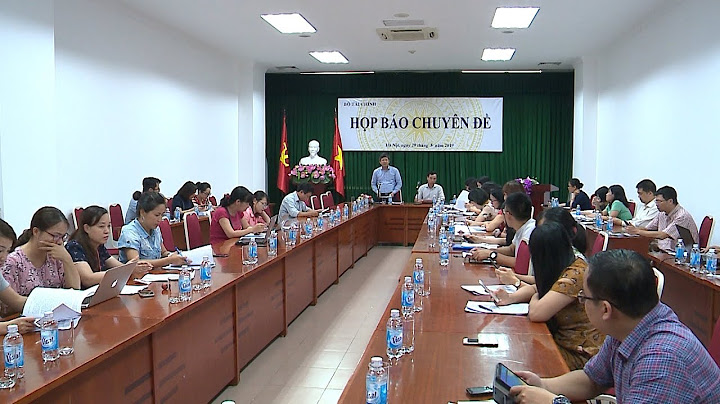Ten years ago, many of you walked through the lobby doors for the first time to begin your LREI journey. Others joined you along the way; and together, you’ve arrived at this day - this moment for reflection - in a learning journey that we hope will continue for a lifetime. I also walked through those doors ten years ago and, as parent, teacher and principal, it has been a distinct pleasure and honor to watch you grow into the young women and men before us today. The tradition of the dream flags, which adorn this room and represent the collective thoughts and wisdom of the eighth grade classes that have come before you, is also ten years old today. So too is the puzzle that you have set for me in trying to weave the quotes on your dream flags together into a meaningful narrative that says something about each of you as individuals and as a community. Let us begin. One tradition associated with these sorts of speeches is to convey all sorts of useful, but equally profound advice for living a life imbued with meaning and purpose. So I start with the dream flag that reminds us that There's always money in the banana stand No truer words were ever uttered by the patriarch of the Bluth family George Bluth, Sr. For those unfamiliar with the elder Bluth, he is character on the sitcom Arrested Development, which follows the fictitious Bluth family, a formerly wealthy and habitually dysfunctional family. During closely monitored prison visits, George, Sr. regularly advised his son Michael that there was always money in the family banana stand, even when the profits from the stand were less than lucrative. Michael, in true Arrested Development fashion, was too oblivious and naive to look more deeply into the meaning of what his father said. So in a power play, Michael burned down the banana stand only to learn that his father had lined the walls of the banana stand with $250,000. So it goes. I’ll try not to make the same mistake as we explore what’s lining the walls of this class’ proverbial banana stand. A cursory investigation reveals a number of essential themes: our sense of self, the importance of community, the need for values, the willingness to persevere, the inevitability of change, a commitment to activism, and the value of a living in and for the moment. So we’ll start at the center -- with the individuals that make up this most talented class Why fit in when you were born to stand out? I've always been famous, it's just no one knew it yet. While the tattoo artist and writer Kat Von d can literally claim I am a canvas of my experiences, Each of you has been shaped by the experiences that bring you to this moment today. They have left an indelible mark on you and they have transformed you. But you have also discovered along the way that you cannot retreat into the self. To be fully alive requires a connection with other people -- with the people surrounding you today. My thoughts are stars I can't fathom into constellations Why don't you scream a little louder We can’t fully realize who we are without the people who we care about the most. They help us to find meaning in our sometimes scattered thoughts and lives and they push us to be the best version of our self. As Coco Chanel observed of girls, which I think applies more broadly today, an eighth grader should be two things: classy and fabulous. I would go a step further and suggest that while classy and fabulous are certainly appropriate, if we really want to get to the heart of the matter, this class is So quiche For those not in the know, “so quiche” is not just hot, “but like it’s a step above hot” and comes to us from Chris Lilley's sitcom Ja'mie: Private School Girl. As Liley comments, "I thought it would be a funny idea to have a word; it’s the idea that she’s inventing her own language. She’s come up with a word to describe herself that would be beyond hot, so yeah, I just thought it was within her character to do that.” And as sometimes happens, a word or idea moves out of the realm of fiction and takes on a new life in the context of our lived lives, which seems to be the case here. Now I want to pause here for a moment and acknowledge that I’ve seen the show and in moments it’s funny. At the same time, it is important that we don’t lose sight of origins. “So quiche” loses something of its charm when we remember that Ja’mie is a status obsessed, dim witted, bully and racist. So I think the flag that quotes Kendrick Lamar is right when it says, If I'm gonna tell a real story, I'm gonna start with my name. Ultimately, we have to own the stories we tell and real stories begin with what is essential; they are grounded in our core values and beliefs. As the fox tells the Little Prince It is only with the heart one can see rightly; what is essential is invisible to the eye. While far more poetic, I think that we are firmly back in the domain of there always being “money in the banana stand.” It is simply a question of seeing past assumptions to get at what really matters, what is “lining the walls." While the Bluth family can’t get beyond the money, Chris Bosh is right when he says, It's not about the money; it's not about anything else except for winning. And I think that winning here is really about two things: the desire to be the best version of ourselves and the willingness to commit to the hard work that this requires. Effort matters. When we understand the meaning of Jedi Master Yoda’s words “Do. Or do not. There is no try.” Then might we say as the flag that does quote Yoda says, The Force is strong within you young Padawan. So Fee fie foe fum and face your fears We all have our giants to slay and they come to us in different forms. They can give rise to self-doubt and cause us to question our abilities and sometimes our most deeply held values and beliefs. And sometimes they can undermine the relationships that have made our time together so meaningful. The very things that held you down are going to carry you up and up and up A little magic can take you a long way I think that the magic here is really about belief -- about our capacity to see possible futures in the face of sometimes overwhelming odds. Dunder Mifflin manager Michael Scott from the sitcom The Office knows this all too well. But in the end, we root for him because his heart is pure and he cares deeply about the people around him. We laugh, but we also forgive him as he struggles to be his best self. In Michael’s words, Fool me once, strike one, but fool me twice... Strike three! Like Michael, Yogi Berra cautions us that If you don't know where you are going, you might wind up someplace else. No matter if you find your way, you're bound to find some way And again, we find ourselves back at the banana stand. However much we might want to take a dim view of George Bluth, Sr., the money lining the walls of the banana stand was his Plan B. He saw the value (setting aside what me might think of his values) in “finding a way.” So When nothing goes right... Go left Over the last four years, we have asked you to work hard. We’ve asked you to take risks and to learn from them. Even when it seemed too much, you persevered. You have come to understand the truth in Victor Kiam’s observation that Even if you fall on your face, you're still moving forward, in Winston Churchill’s insight that Success consists of going from failure to failure without losing enthusiasm, in Albert Einstein’s recognition that A person who never made a mistake never tried anything new, There's no such thing as a bad idea. Only poorly executed awesome ones. So it is hardly surprising that as you come to the end of this middle school journey it is clear that you understand what Alfred A. Montapert meant when he said, Expect problems and eat them for breakfast. If this suggests a certain sense of life getting just a bit too overwhelming, Audrey Hepburn reminds us that Nothing is impossible, the word itself says, "I'm possible.” What then is the pathway that takes us from the impossible to the possible? It is the embrace of change and the recognition of the inevitability of this change. I am compelled each time I speak at this occasion to ask you to look to your right, to the left, to the front and to the back. As a class, you will not be together in this way ever again. Savor the moment, but know that you are already in motion away from it towards something new. As you think, so shall you become First Lady and friend to LREI Eleanor Roosevelt suggested the following as a road map for navigating through and towards change: The future belongs to those who believe in the beauty of their dreams This journey in the service of our dreams is not always an easy one. Many of you recognized this in the context of your social justice projects and in the challenge you faced in finding ways to engage with the world that are sustainable and aligned with our shared commons. Sometimes it is a matter of stepping back and getting a little perspective. As Erma Bombeck writes, If you can’t make it better, you can laugh at it, but we know that this is only a temporary solution. To get stuck here is to invite cynicism and despair. Authentic laughter sets the world slightly askew and allows us to see new perspectives and possibilities. We commit to growth; we refuse to give in to stagnation and we begin the process of moving forward again. As Robert Kennedy challenged us, There are those who look at things the way they are, and ask why... I dream of things that never were, and ask why not? This “why not” is at the heart of all of the social justice efforts you have engaged in during your time in the middle school. It also connects to all of the work that you have done to understand what it means to be a member of a diverse community. They are both connected by empathy, which may be our most important human disposition. So we can say, Namaste, Which roughly translates from the Hindu to "I bow to the God within you", or "The Spirit within me salutes the Spirit in you" - an acknowledgment that we are all made from the same stuff. But a caution here because the attribution for “Namaste” comes from Thad Castle, a football player on the show Blue Mountain State. Thad is complicated; a bully and a leader devoted to his team. So what does it mean when “Namaste” becomes his catch phrase? Does it trivialize a rich cultural heritage when co-opted by Thad. I’m not sure, but I do know that while we may be made of the same stuff, we need to be equally mindful of the inequalities that limit opportunities for some and the privileges that make opportunity easier for others. In a similar vein, comedian Kevin Hart in a youtube rap battle tells us that The top of my mouth is hot... hot pockets! Maybe some of you are familiar with Hot Pockets. If not here is some insight from blogger Ethan Siegel, When I was a teenager, my choice of food was basically determined by three criteria: 1) It needed to be ready in under 10 minutes; 2) it needed to have enough calories to make me not hungry anymore; and 3) it needed to be (marginally) edible. That was really it. Basically, if you could serve me something that was hot with fat and salt in it, I wasn’t complaining. And so it won’t surprise you to know that a portion of my diet at the time consisted of?—?you guessed it?—?Hot Pockets. And to be fair, they don’t actually look so bad on the box. But if you’ve ever tried to microwave one, even using the vaunted “crisping sleeve” that comes with it, the very outer layer gets crispy, the outer edges of the interior come out boiling lava hot, and the middle remains completely frozen. Your only alternative is to nuke the everliving daylights out of it, in which case the entire thing will not only give you second degree burns, but will explode inside your microwave.” He goes on to explain the very interesting physics of why this is the case, but that is a story for another occasion. The more important question for us is do we really want to live in a “hot pocket” world where things are cheap, disposable, and probably not all that good for us? A world where how we think about the value of a hot pocket is also likely connected to other inequalities. A throwaway snack for one and a food staple for another. And I think in a way that we are back to the banana stand again. As critic Gretchen Sisson observes, Once you have the social and cultural capital, you can pretty much fake it, even when the cash goes up in flames. For the Bluths, their wealth is a performance, but their class privilege is real…. What's hilarious about the Bluths is how much they pass, and how far they get on so little. Without jobs, common sense, or any shred of adult reasoning ability or discipline, they coast along from ridiculous premise to absurd scenario on the sheer expectation that exceptions will be made, that money will materialize from somewhere, that they'll be met with success. And it usually does, because that's what having class privilege means…. Mostly, though, they're able to keep up appearances because they know how to keep up appearances and they have enough privilege to do it—and that's what passing is really about. You have spent considerable time this year challenging yourselves to think deeply and take action in response to the many forms of injustice that exist and where relevant to acknowledge the workings of privilege. This is truly hard work and, like Tove Jansson’s Moomin characters, sometimes we just want a break I only want to live in peace and plant potatoes and dream. But we can’t retreat from our collective responsibility for and to each other. As Oscar Wilde who was no stranger to the cruelty of intolerance commented Either the wallpaper goes, or I do. So there will be hard choices to make. All of you learned from Holocaust survivor Frances Irwin as she recounted her story of survival in the face of the inhumanity that was Auschwitz. Some of you also heard Elie Weisel speak to similar issues. We are at a moment where the story of the Holocaust has become a story experienced by children and told to us by those children who are now elders. Soon there will no one to tell their story; the responsibility for telling will fall to those who have been witness to the telling. That responsibility will fall to you. A heavy responsibility, but you are ready. As the poet June Jordan reminds us, We are the ones we've been waiting for Which brings us squarely back to the here and now. We reflect today on the journey each of you has taken so far and imagine where that journey might take you next. But as one of you shared earlier, January first has come so fast. Guess another year has passed. I don't know what to say. Well I guess it's another day |





















